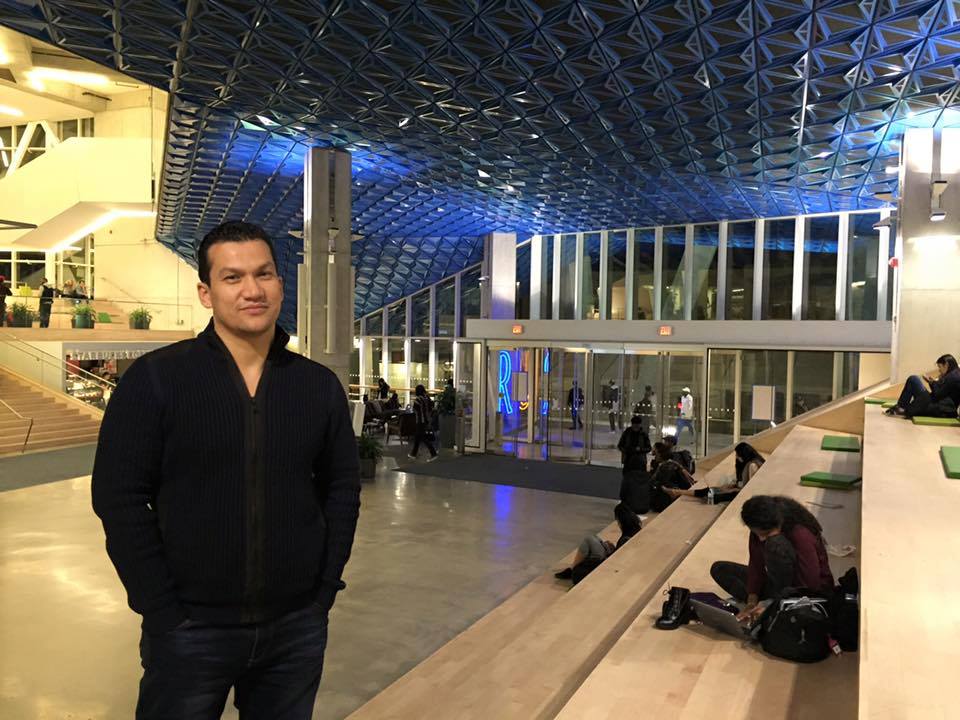Computer Networks (MASc, MEng)
Part of the Faculty of Engineering and Architectural Science

Format: Full-time (MASc, MEng), Part-time (MEng)
Degree Earned: Master of Applied Science or Master of Engineering
Established in 2001 with the support of Cisco Systems, this leading program offers advanced skills that are in high demand in the networking industry. Our focus remains on innovative, quality learning with emphasis on practical knowledge that empowers students to reach their career goals.

MASc
- Completion of a four-year undergraduate degree in engineering, computer science, mathematics or physical sciences (or equivalent degree) from an accredited institution
- Minimum grade point average (GPA) or equivalent of 3.33/4.33 (B+) in the last two years of study
- Statement of interest
- Resumé/CV
- Transcripts
- Two letters of recommendation
- English language proficiency requirement
MEng
- Completion of a four-year undergraduate degree in engineering, computer science, mathematics or physical sciences (or equivalent degree) from an accredited institution
- Minimum grade point average (GPA) or equivalent of 3.00/4.33 (B) in the last two years of study
- Statement of interest
- Resumé/CV
- Transcripts
- Two letters of recommendation
- English language proficiency requirement
More information on admission requirements. Due to the competitive nature of our programs, it is not possible to offer admission to everyone who applies that meets the minimum entrance requirements for the program.
Students are encouraged to submit applications prior to the first consideration date to increase their chances of securing financial support for their graduate studies. Applications received after the first consideration date will be accepted and reviewed based on spaces remaining in the program.
See application dates.
For detailed graduate tuition and fees information please visit Fees by Program.
For information on scholarships, awards and financing your graduate studies visit Financing Your Studies.
- Network Architecture
- Network Security
- Software-Defined Networking
- Wireless Networks
- Advanced Topics in Network Security
- Advanced Wireless Networks
- Introduction to Computer Networks
- IP Protocols
- LAN and WAN Switching
- Multimedia Networks
- Multimedia Processing and Digital Communication
- Network Architecture
- Network Design
- Network Mathematics and Simulations
- Network Operating Systems
- Network Security
- Network and Service Management
- Server Networks
- Storage Networking
- Wireless Networks
- Cloud Computing Lab
- Network Security Lab
- Routing and Switching Lab
- Voice Over IP Lab
- Wireless Lab
Graduate Admissions
Admissions information and how to apply
Graduate Studies Admissions Office
11th Floor, 1 Dundas Street West
Toronto, ON
Telephone: 416-979-5150
Email: gradhelp@torontomu.ca
For information specific to programs, please see the program contact information below.
Program Contacts
Dr. Alagan Anpalagan
Graduate Program Director
Telephone: 416-979-5000 ext. 556079
Email: alagan@torontomu.ca
Tina Hong
Graduate Program Administrator
Telephone: 416-979-5000 ext. 557218
Email: compnet@torontomu.ca
“It gives you the opportunity to learn the principles behind the computer network, applying it with the latest network technology by practicing it on the most popular devices in the industry.”
 (external link)
(external link)
Student Profile (external link)
Khair Mohammad Aimaq (computer networks MEng alumnus) reflects on his journey from Afghanistan to Toronto Metropolitan University to pursue his graduate education.

Once you’ve made an informed choice about which program(s) you are going to apply to, preparing your application requires careful research and planning.
Funding
At Toronto Metropolitan University, we understand that pursuing graduate studies is a significant financial investment. Funding comes from a combination of employment contracts (as a teaching assistant), scholarships, awards and stipends. There are a number of additional funding sources – internal and external – available to graduate students that can increase these funding levels.
Research
As an urban innovation university, Toronto Metropolitan University offers 60+ cutting-edge, career-oriented graduate programs, as well as 125+ research centres, institutes and labs, in a wide range of disciplines. Our close connections with industry, government and community partners provide opportunities to apply your knowledge to real-world challenges and make a difference.
